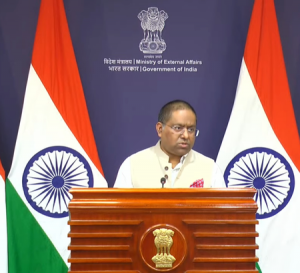India's satellite launch market not strong enough for internal customers, says ISRO chairman.
ISRO Chairman S Somanath stated that India's satellite launch market lacks internal demand, but this can be improved by increasing the use of satellite technology. Big companies are interested in entering the space sector.

During the India Space Congress 2024, ISRO Chairman S Somanath shared his thoughts on the current state of the satellite launch market in India. He expressed that while there is potential for growth and expansion, there is currently not enough internal demand for satellite technology. However, he believes that this can be changed through increased efforts in applying satellite technology to various industries.
Somanath also addressed concerns from big companies who are interested in entering the space sector. These companies are eager to invest, but they are looking for assurance of a profitable return and a stable stream of orders. The chairman acknowledged this as a major challenge in attracting investors for large state projects.
In order to increase demand, Somanath emphasized the need to create more internal demand. This requires the involvement of various industries, particularly in the communication segment. He explained that InSpace has already taken the initiative by announcing a funding plan for a new earth observation constellation.
Another step towards creating internal demand is providing orbital slots and frequencies to industry for building satellites and launchers. Somanath also mentioned that while the cost of accessing space has decreased globally, India's rocket costs have not seen similar reductions. He believes that reducing costs will not only boost small satellite launches but also attract new participants in the space sector.
The chairman also spoke about Prime Minister Narendra Modi's vision for Amrit Kaal, which includes extending human space activity beyond the Gaganyaan mission. The goal is to land on the moon by 2040, but Somanath pointed out that India's current rockets are not sufficient for round trips to the moon. He stressed the importance of developing rockets with higher payload capacity for bringing back samples and future human missions.
However, Somanath also emphasized the need for commercial sustainability in these endeavors. He believes that space activities should support a broader ecosystem and not just focus on lunar missions. To achieve this, India's industrial capacity to produce launchers needs significant enhancement, and more companies must enter this field to increase production capabilities.
On a positive note, the chairman announced that GSAT-20 is set to launch in mid-August aboard Falcon 9. This satellite has received clearance to be moved to the United States for launch. Overall, Somanath's message was one of optimism for the future of India's space sector, with a focus on creating internal demand, reducing costs, and developing sustainable commercial capabilities.










